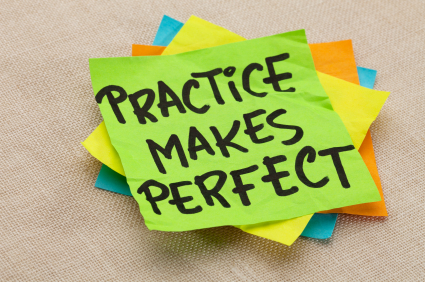Five Ways to Keep Your Spokesperson Skills Fresh
You just attended a media training workshop. You learned some great tips and techniques that will allow you to become a more effective media spokesperson.
But if you don’t continue to practice the skills you learned in that session, your skills will atrophy. And since you probably won’t have the opportunity to conduct media interviews on a daily basis, keeping your skills fresh can be a challenge.
What now?
The good news is that there are some simple ways to keep your skills fresh in your everyday life, even if you’re not fielding calls from reporters or making presentations on a regular basis.
In today’s post, you’ll learn five ways to keep your skills as a spokesperson fresh.
1. Watch TV: There are A LOT of spokespeople on TV these days. Watch any cable channel for an hour or any Sunday politics talk show and you’ll see a range of extremely talented to (probably) pretty bad talking heads. Notice what they’re doing that works and what they’re doing that doesn’t. Pretty soon, you’ll be able to identify their successes and take them into your next interview or presentation.
2. Talk to your neighbors: Talking to people about what you do is a great way to practice your messaging. Remember, effective messages should be simple and brief. If you can clearly explain to someone what you do—be it your neighbor, your teenage relative, or the person sitting next to you on the plane who insists on chatting for the entire flight—you likely have well-written, effective messages.
3. Enlist your coworkers: Often, your coworkers can help you anticipate some of the tough questions you’ll field in your role as a spokesperson. Find a few you trust and set up your own firing squad. Have them fire questions at you and practice answering them while remaining on message and turning the tough questions into positive answers. Bonus points if you can recruit an extra person to keep tally for how many times you’re able to stay on message.
4. Read up: By reading this blog, you’re (hopefully!) already a step ahead. Continue seeking out new information and helpful tips. Also, as you’re reading news stories in the paper and online, notice the quotes. Pay attention to how long they are and what they can effectively communicate in so few words. When you consider what types of quotes reporters are using, you’ll be able to tailor your language and your messages better.
5. Keep collecting those sound bites: Developing good sound bites takes time. The most effective sound bites are rarely spoken on the fly. When you’re having conversations in the office and somebody says something clever that supports one of your messages, write it down! Refine it and try using it in one of your interviews or presentations.
Remember, great spokespeople are rarely born. They practice their craft, honestly evaluate themselves and continuously look for techniques to continue improving.
Christina Mozaffari is the Senior Media Trainer for Throughline Group.
Did you find this article helpful? If so, please share it with your networks by using one of the share buttons below.



